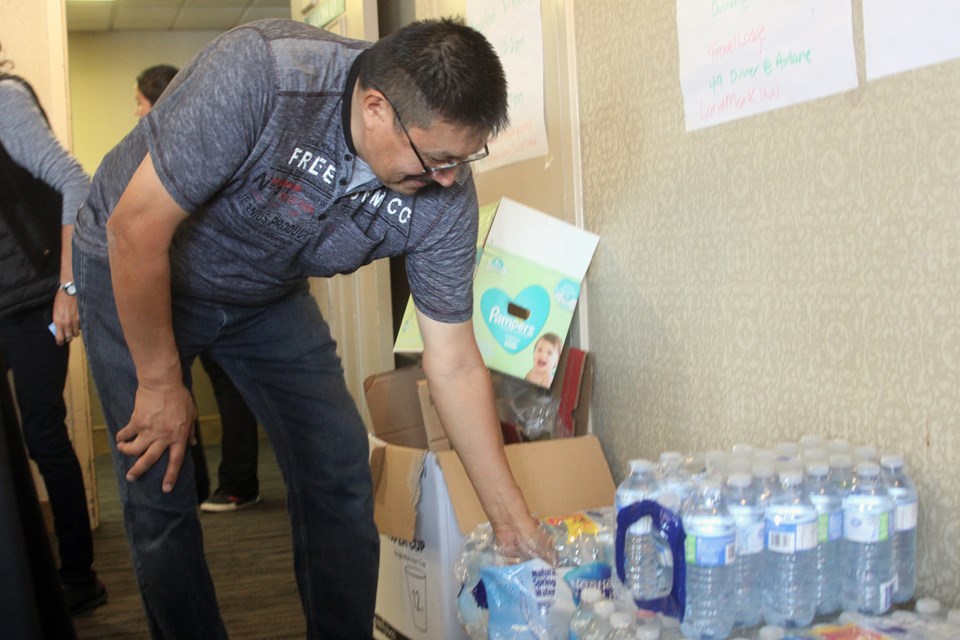THUNDER BAY – Repairs have been completed to Neskantaga First Nation's water treatment pump, though about 200 people remain in Thunder Bay after the latest setback for the community already facing the longest continuous boil water advisory in Canada.
A self-evacuation was ordered by Chief Chris Moonias after two water pumps failed, leaving some homes in the community without running water while others had low pressure flows of unfiltered, contaminated water. Neskantaga leadership, which issued an elevated state of emergency declaration on Saturday, requested a federal government led evacuation, but that call was rebuffed.
Neskantaga councillor Allan Moonias said the evacuation has been stressful for community members.
“They didn’t want to leave home,” Moonias said on Tuesday. “They love their home. But they needed water. They needed to take a bath. They needed to do their laundry. Some of the members that came out were getting sick and were getting rashes.”
The community's existing boil water advisory was upped to a do not use warning, with recommendations to only use the water for flushing. The situation forced the closure of the community's school while the nursing station was open only for emergencies.
Indigenous Services Canada spokesperson William Olscamp said the department has been informed by the Matawa Tribal Council that the repairs are now finished and water is flowing through the distribution system, with an environmental health officer in the community to conduct testing.
Moonias said federal government officials on a conference call told community leadership they didn’t consider the low water pressure to constitute an emergency.
“We even tried explaining to them that some homes don’t even have running water. There’s only certain places that had a little bit of a flow of water,” Moonias said. “It was untreated. It was raw water going into the community so people were getting frustrated.”
Olscamp said Indigenous Services Canada is offering assistance to community members that remain in Neskantaga and is working with partners to provide assistance as required for those who were transported to Thunder Bay.
"As there were no immediate health or safety risks, the department's advice to Chief and Council was to minimize disruption to community members, knowing that the issue could be repaired in a short timeframe," Olscamp said.
The government had planned to allocate each person in the community 1.5 litres of water per day for bathing and cleaning.
That amount made doing day-to-day tasks virtually impossible, said Maggie Sakanee, who helps care for three of her grandchildren in Neskantaga.
“That’s not even enough to clean, wash and do the laundry,” Sakanee said, adding that the three grandchildren all have sores and just properly disinfecting their clothes requires much more water.
Sakanee, who is on crutches after recently fracturing her hip, said she is concerned about how she would manage if she had to return home without running water.
“That’s what we really need, is to have running water through our homes, especially for our elders,” she said. “Now, I feel helpless because I can’t do anything anymore and there’s no water to clean myself.”
The long-term boil water advisory in Neskantaga nears the quarter century mark after being first implemented in 1995. The following 25 years has resulted in a generation of community members only knowing that water from their taps is unsafe to drink.
Even in Thunder Bay, Sakanee said she won’t drink water from the tap in her hotel.
“I don’t drink it,” she said. “I still buy water.”
The federal government in 2017 approved up to $8.8 million for a new water treatment plant in the community, which was initially expected to be completed last year. After running into delays, community leadership terminated their agreement with the original contractor. The project is now said to be on track to be finished in October.
“The community is tired of this. We need to get our water going,” Moonias said.
